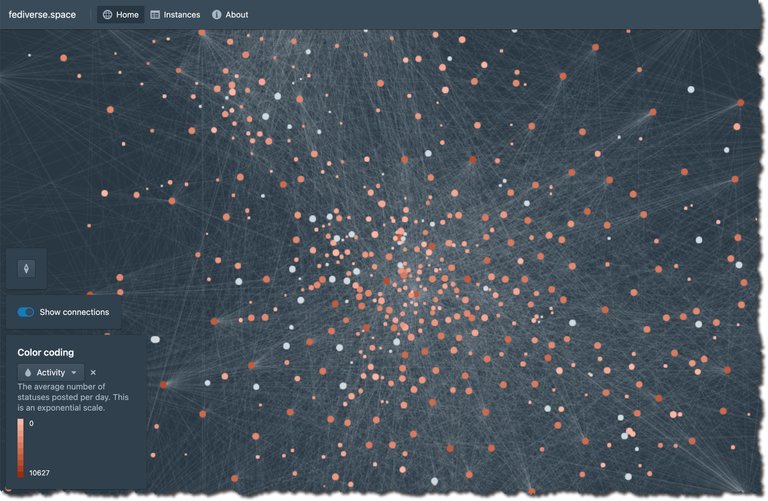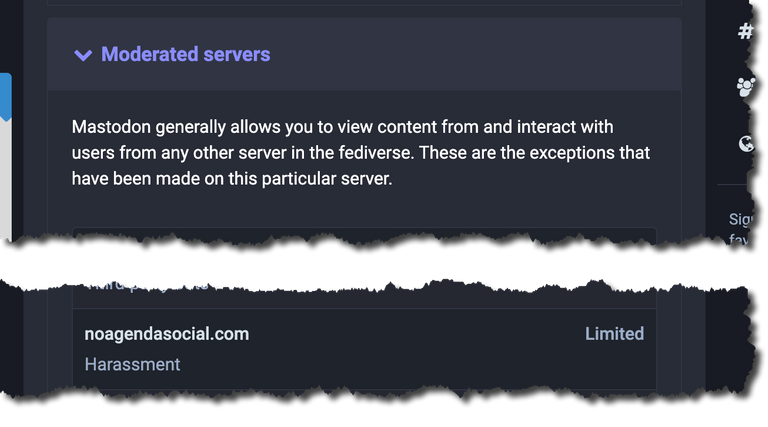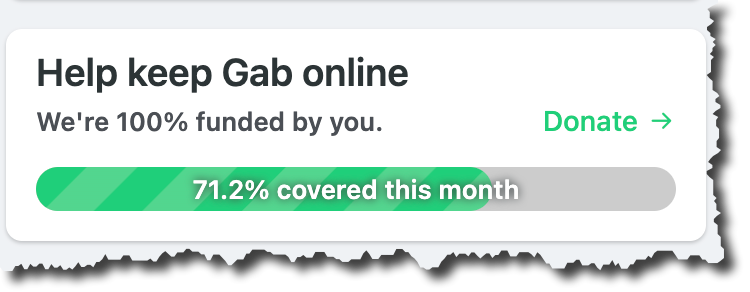One way or another I've been on Mastodon for a few years. For a number of years the No Agenda Podcast has maintained its own instance of Mastodon and I've been somewhat active there.

Just a reminder, I'm currently collecting votes for my ongoing work proposal #244
Support Proposal 244 on PeakD
Support Proposal 244 with Hivesigner
Support Proposal 244 on Ecency
Now back to the post....
More recently, two years ago, Adam Curry and Dave Jones set up the PodcastIndex and they established a Mastodon instance to serve as the community gathering point for the developers and podcast interested people who work on the various aspects of Podcasting 2.0 to gather.
If I had to say what Mastodon feels like, it is the original bulletin boards and small communities of the early web. The aspects of Federation, and talking between instances doesn't much appeal.
Federated Mastodon
And therein lies the problem for the woke refugees from evil rocket man and the bad orange man: going viral and reaching huge numbers of people is very hard in the Fediverse.
Todd Chochrane is an OG Podcaster and his show Geek News Central has been going for years... he knows his tech and he nails the difference between Mastodon and a centralised site like Twitter. What he says there is that if you want to talk to a specific group of people about a specific subject, a dedicated Mastodon instance is great. You can even communicate with people logged in through other instances but this is where it gets complicated.
What's your policy?
Each instance of Mastodon is run by an entity of some kind: some are run by individuals, some by large corporations and everything in between. For example, Privex.social has recently been started by @privex, the hosting company I use. I'm following the main guys there, but I'm doing it from my account https://podcastindex.social/@brianoflondon on Podcastindex.social
Each one of these instances has their own culture and set of moderation policies (or lack of). One of the largest Mastodon hosts, and run by the founder and lead dev of Mastodon is mastodon.social. The other server I've been a part of for a long time is the noagendasocial.com server. Which was partially blocked from Mastodon.social years ago because a few users from No Agenda Social decided to troll the users on Mastodon.social.

Moderation
Because many of these Mastodon instances are run by either one or a few people, and because they're now being sought out as a refuge from the horrors of free speech over on Elon's neo-Twitter, some are finding out that the moderation they require in order to feel "safe" is not easy at scale.
The story told is basically one of content being mis-reported by a user and then the problems of quickly trying to determine if it complies with the sensibilities of the Mastodon host.
The basic issue is who should be moderating content and who needs the moderation?
No Agenda Social no Moderation
There is a report button on No Agenda Social's Mastodon instance. It's quite clear that 99.9% of reporting on that instance (perhaps all of it?) is ignored. Adam Curry has said this on the podcast a number of times. If anything it may lead to the banning of the serial reporters.
At the bottom of it all, if you don't like what someone is saying to you, or their content, the main moderation method is to block them. Simple. But this isn't the way the progressive left thinks and this is going to cause them problems when the money to moderate runs out.
Can anyone moderate at scale?
With Twitter and Facebook both scaling back headcount dramatically, how is moderation at scale by centralised entities going to continue? We don't know. Mistakes are rife (look at my own banning from Twitter for a line from Monty Python) and yet those most desperate to see everything they don't like moderated away are never satisfied.
Mastodon's server problem
And then we get to Mastodon's server problem. Mastodon is a bit of beast to run. James Cridland is a tech savvy journalist and the producer of excellent content and news about the whole Podcasting industry. He runs a lot of tech systems, some of which he's built himself and can generally figure out how to run anything he sets his mind to.
He started up his own Mastodon server a few weeks ago...
He fixed this quite quickly and I'm only bringing it up to point out that it simply isn't reasonable to expect many people to run Mastodon hosts. And of course there is no inbuilt monetisation system so
At the other end of the scale, once an instance of Mastodon heads up toward 10,000 active users, the resource requirements and constant maintenance (technical requirements outside of the moderation requirements an instance sets for themselves) can grow to be enormous.
A couple of years ago, the independent social site gab.com decided to dump its own self built tech stack and move to Mastodon. I used the site a bit but found it to be filled with people who didn't like me, my self moderation scheme was to not use it.

Very soon after they made their move to Mastodon, however, they dumped the federation part and disconnected themselves completely. So they're just another Web 2.0 site keeping themselves going without any internal incentivisation.
What have we learned?
My opinion is that Mastodon isn't going to provide progressives with the warm safety blanket of pronoun respect they're looking for. Any kind of success in the Fediverse will lead to the breakdown of the instance which achieves that success. Either technical failure, misaligned financial costs or the most common social breakdown over moderation decisions and petty infighting.
Hive
So I'm here on Hive, where there's a proper model of financial incentives to both keep what we've got running and develop new stuff in a slow and cautious way. That's what I'm doing with my work on @v4vapp and @podping and all the rest. Thank you for joining me on this!
Support Proposal 244 on PeakD
Support Proposal 244 with Hivesigner
Support Proposal 244 on Ecency








